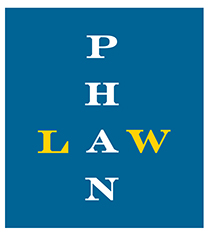Corrective Action in Disciplinary Proceedings for Texas Nurses
What Texas Nurses Should Know Regarding Corrective Action in Disciplinary Proceedings
The landscape continues to evolve for Texas nurse attorneys who assist Texas nurse in disciplinary complaints brought by the Texas Board of Nursing. Over a decade ago, there was a shift in philosophy regarding the recognition that not all violations should result in permanent, public disciplinary action because of the lack of seriousness of the violation. One such mechanism allowing for the resolution of enforcement cases against Texas nurses short of permanent, public action involves corrective action. Although corrective action exists currently, change is slow. As such, this method is one that the Board does often suggest to resolve cases. As such, Texas nurses must continue to be knowledgeable that this method exists and, most importantly, to advocate for this if their particular case is eligible for corrective action in a disciplinary proceeding.
Historically, the Nursing Practice Act restricted the Board’s discretion to resolve an enforcement action through anything other than a public disciplinary order. Corrective action provides the Board the authority to resolve certain cases and prevents a nurse from receiving a public disciplinary order where violations of the Nursing Practice Act and/or Board of Nursing rules occur.
Determining Eligibility for Corrective Action
The threshold determinations for corrective action proceedings are found in the Board of Nursing’s rule 213.32(2) which lists the seven violations that are eligible for corrective action. These include:
- practice on a delinquent license for more than six months but less than one year;
- failure to comply with continuing competency requirements;
- failure to assure licensure/credentials of personnel for whom the nurse is administratively responsible;
- failure to provide employers, potential employers, or the Board with complete and accurate answers to either oral or written questions on subject matters including, but not limited to: employment history,
- licensure history, and criminal history;
- failure to comply with Board requirements for change of name/address;
- failure to develop, maintain, and implement a peer review plan according to statutory peer review requirements; and
- failure of an advanced practice registered nurse to register for prescriptive authority in an additional role and population focus area, where the advanced practice registered nurse otherwise meets all requirements for prescriptive authority as specified in Chapter 222 of this title (relating to Advanced Practice Nurses With Prescriptive Authority).
Corrective Action Compared to Traditional Disciplinary Action
Compared to a typical disciplinary order, which is discipline against a license that is public and permanent, corrective action proceedings: (1) are not disciplinary action under Texas Occupations Code; (2) have limited penalty(ies) consisting of a monetary fine and/or remedial education; (3) are not subject to public disclosure; and (4) are not deemed, upon acceptance, as an admission of a violation (Caveat: once accepted, corrective action is deemed a nolo contendere plea).
Is a Texas Nurse Eligible for More Than One Corrective Action?
One of the more interesting issues regarding corrective action is whether a nurse, who previously received corrective action, is eligible for corrective action again in the future. Put another way, is a nurse eligible for multiple corrective actions. For example, if a nurse received corrective action for practicing on a delinquent license, is this same nurse eligible for corrective action in the future should he or she face a complaint involving a different eligible violation such as a failure to comply with continuing competency requirements?
A Review of Board Rule 213.32
Although it would seem that a nurse would not be eligible based on the requirement under Rule 213.32(2) and (3), respectively, that provides “. . . the Board may impose a corrective action for the first occurrence . . .” (emphasis added) and “[a] individual will not be eligible for a corrective action if the individual has committed more than one of the violations listed [under Rule 213.32(2)],” the rule allows for an interpretation that would permit a nurse to argue that the rule contemplates a “first occurrence” for each of the seven violations under 213.32(2). (emphasis added).
It appears that it would be more difficult to attempt to construe the limitation found at 213.32(3) that provides that “[a]n individual will not be eligible for a corrective action if the individual has committed more than one of the violations . . .” Here, if one reads this provision by itself, it is clear that a nurse with multiple eligible violations would not be eligible. However, 213.32(3) must be read in conjunction with 213.32(2) which provides for “. . . the first occurrence of each . . ..” Using language from 213.32(2), it may be plausible to argue that if a nurse has multiple eligible violations in a single complaint, he or she would be ineligible for corrective action, but multiple instances of a single eligible violation may not preclude eligibility.
Corrective Action – The Bottom Line
Of course, these legal arguments are interesting to consider and raise, but a more practical consideration when an issue such as this one arises is a recognition that the authority to grant corrective action vests solely at the discretion of the Board’s Executive Director. Thus, although a nurse with previous corrective action may be correct regarding his or her interpretation of the law and application of the rule, the Executive Director, for a myriad of reasons, could determine that the Board would not extend the opportunity to enter into an agreed corrective action. If so, a nurse would be left with very few available options available that are not more burdensome or costly to contest. Further complicating this analysis, is the fact that a corrective action order is not available as a result of a contested case proceeding (i.e., SOAH) and thus there is nothing that would preclude the Board from filing Formal Charges to initiate that process and argue that the initiation of that process absolutely bars a corrective action remedy.
If you are wondering whether your Texas Board of Nursing complaint is eligible for corrective action, you should contact a Texas nurse attorney and law firm with a long proven history of addressing this issue for nurses.










